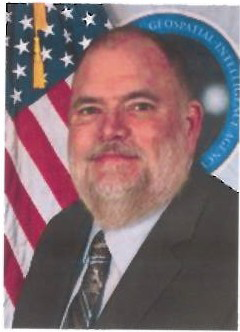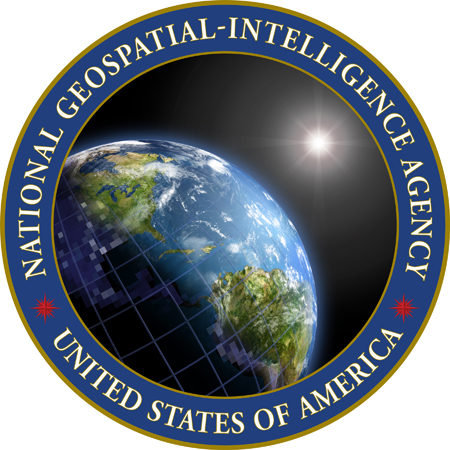University Communications and Marketing
January 12, 2017
MSUB hosts NGA Intelligence Officer for lecture, visit
Martin Cox discusses America’s role in countering west Africa Ebola crisis and highlights international career opportunities during MSUB visit. Lecture takes place from 7-9p.m., Jan. 24, Library 148 and is free and open to the public.
Contacts:
Paul Foster, Director International Studies, 247-5785
University Relations, 657-2266
MSU BILLINGS NEWS SERVICES — Martin Cox was born and raised in a rural part of southeastern Virginia, but that hasn’t stopped him from having an exciting international career within the United States intelligence community.

“If the concern is that someone who has lived overseas and traveled frequently internationally, while those life experiences are helpful, they are not a deciding factor in NGA's hiring process,” Cox said.
The job of the NGA is to be able to identify anything and everything on, above, or beneath earth’s surface. They make that information visually available and meaningful so decision makers have real-time tools. The agency analyzes data from a plethora of sources, which is used for national defense, homeland security, and navigation safety.
The types of programs available at MSUB are all skills sought after by NGA and the rest of the Intelligence Community, Cox said, including: physical and computer sciences, international relations, cultural anthropology, psychology, geography, linguistics, and economics, to name only a few.
Cox hopes his visit will help expose students to the diverse set of missions that intelligence professionals at NGA and the broader intelligence community perform.
“Although it may appear at first glance that an organization like NGA might only be looking for STEM majors, in reality, almost any field of study at MSUB would have some type of applicability to NGA or some other part of the nation's intelligence organizations,” he said.
On January 24, Cox will give a public presentation about how the NGA supported the 2014-15 West Africa Ebola outbreak.
The lecture, “Geospatial Operations and the Ebola Crisis in West Africa: a first-hand account of American relief efforts,” is free and open to the public.
City College Dean Clifford Coppersmith, whose career background includes time within the military and intelligence fields, said the country’s war effort and ramped up financial contributions to technology and hiring means agencies like the NGA are looking for students with backgrounds in everything from computer science, international relations and human resources. Although staff does support “war fighters,” not all missions are directly militarily related.
Intelligence support can include watching hurricanes, helping combat wildlife trafficking or assisting countries with disease outbreak.
“If you take what the NGA did to support the Ebola outbreak in Africa, you’ll see a dedication of a number of resources: imagery, looking at regional burial practices, geography… and what you get is that they were able to tackle the problem relatively quickly,” Coppersmith said.
Today, an Ebola vaccine is showing promise. This was made possible by a consortium of partners including American researchers, pharmaceutical companies and the World Health Organization, to name a few.
In addition to telling the story of how NGA helped tackle the Ebola outbreak, Cox will spend time with student groups and faculty and staff to build relationships for future recruitment.
Reno Charette, director of American Indian Outreach at MSUB, is excited Cox will dedicate time spent on campus to discuss future opportunities that may exist for them. She said the outreach may open doors that were previously unknown.
“I don’t think my students even realize these kinds of careers are out there,” Charette said. “I really want them to come and explore the opportunities, learn about the agency and all of the career paths that exist within it.”
Cox was appointed to the Defense Intelligence Senior Level in 2014 as the NGA’s National Geospatial-Intelligence Officer (NGO) for Africa where he continues to serve as the primary focal point within NGA for the integration of activities related to the continent.
Prior, Cox was the chief of the NGA Counter-Drug and Western Hemisphere Division and also served as Senior GEOINT Officer for the NGA Support Team to US Africa Command, overseeing an intelligence production of a team of more than 40 civilian and military imagery and geospatial analysts. He began his career with Central Intelligence Agency in 1986, working on Soviet aviation issues.
“I am deeply honored to have the opportunity to come and talk to the students and faculty at MSUB about NGA and our nation's Intelligence Community. I look forward to the visit,” Cox said.
National Geospatial Intelligence Officer Martin Cox, schedule of events:
January 24, 7-9 p.m., “Geospatial Operations and the Ebola Crisis in West Africa: a first-hand account of American relief efforts,” Library 148, free and open to the public.
January 25:
11:30 a.m., Meet with Native American Students, LAS 800 (Faculty Lounge)
1 p.m., Meet with Department Chairs/Faculty, SUB Beartooth Room
2:30 p.m., Meet with ROTC Cadets (MSUB and Rocky Mountain College Detachments),
SUB Beartooth Room

